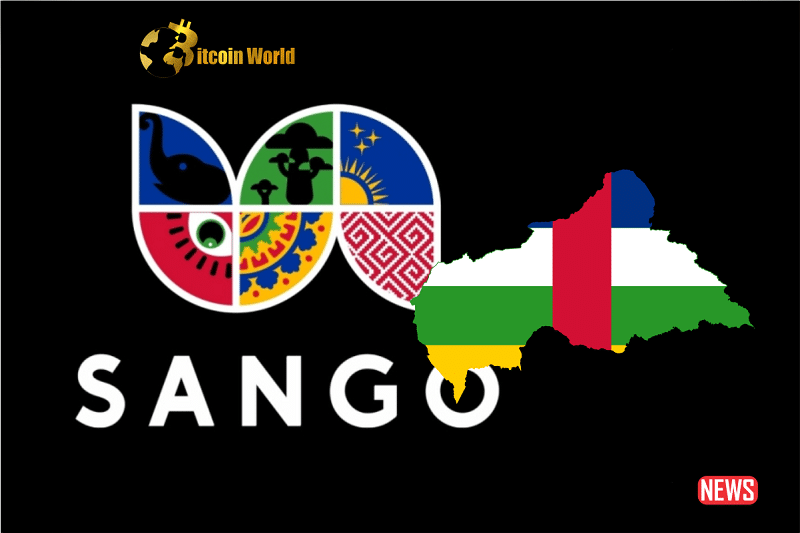Imagine a nation rich in resources, taking a bold leap into the future of finance. That’s precisely what’s happening in the Central African Republic (CAR). Despite the rocky start with its own digital currency, Sango Coin, CAR is doubling down on blockchain technology, setting its sights on tokenizing its abundant natural resources. It’s a move that’s turning heads and sparking conversations about the future of finance in Africa. But what exactly does this mean, and can it succeed where Sango Coin stumbled?
Why Tokenize Resources? A Game Changer for CAR?
CAR’s legislative nod to resource tokenization isn’t just a technicality; it’s a strategic play with potentially significant benefits. Think of it as turning physical assets like land and minerals into digital tokens that can be easily traded and invested in. Here’s a breakdown of the potential advantages:
- Attracting Investment: Tokenization can open doors to a global pool of investors who might have previously found it difficult to invest in CAR’s resources.
- Boosting Transparency and Security: Blockchain technology provides an immutable and transparent record of ownership and transactions, reducing the risk of fraud and corruption.
- Streamlined Processes: Digital licensing and electronic visas, facilitated by the Sango platform, can significantly cut down on bureaucratic red tape for businesses.
- Economic Empowerment: By fractionalizing ownership, even smaller investors can participate in the wealth generated from CAR’s natural resources.
Sango Coin: Lessons Learned or a Lingering Shadow?
The Sango project, with resource tokenization as a central pillar, was initially conceived to fuel investment through the state-backed Sango Coin. Unlike traditional Central Bank Digital Currencies (CBDCs), Sango Coin operates on a sidechain network supported by Bitcoin. However, its journey hasn’t been smooth sailing.
Remember the initial buzz around Sango Coin? Launched with the ambitious goal of raising capital through an Initial Coin Offering (ICO), it faced significant headwinds. The Constitutional Court’s decision to block its use for land and citizenship purchases was a major blow, and the ICO itself saw limited traction. Out of 200 million coins offered at $0.10 each, less than 8 million found buyers in the genesis cycle. This raises a crucial question: Can CAR successfully tokenize its resources when its own digital currency faced such challenges?
The Bitcoin Rollercoaster: A Detour and a Declaration
CAR’s relationship with cryptocurrency has been a bit of a rollercoaster. In a surprising move in April 2022, it became only the second nation to adopt Bitcoin as legal tender, mirroring El Salvador’s bold step. However, this decision was reversed roughly a year later. Despite this backtrack, President Faustin-Archange Touadéra remains a staunch advocate for cryptocurrency and the underlying blockchain technology. His unwavering support is seen as crucial for driving the new resource tokenization initiative.
CAR vs. El Salvador: A Tale of Two Crypto Visions?
President Touadéra’s determination echoes that of El Salvador’s President Nayib Bukele, who has fiercely defended his country’s Bitcoin adoption. El Salvador has since focused on Bitcoin education and even mining initiatives, bringing in prominent figures from the crypto world as advisors. While CAR’s path differs, the underlying spirit of embracing digital assets for economic advancement is similar. Will CAR learn from El Salvador’s experience, both the successes and the challenges?
Navigating the Terrain: Challenges and Opportunities Ahead
Tokenizing natural resources is no small feat. CAR faces a unique set of challenges:
- Infrastructure Limitations: Reliable internet access and digital literacy are crucial for the success of any blockchain-based initiative.
- Regulatory Framework: Clear and supportive regulations are needed to attract investment and ensure the legitimacy of the tokenized assets.
- Market Adoption: Convincing both local and international stakeholders of the value and security of these tokens will be key.
- Past Setbacks: Overcoming the negative perception surrounding the Sango Coin’s initial struggles will require building trust and demonstrating the viability of this new approach.
The Road Ahead: What to Watch For
CAR’s foray into resource tokenization is a fascinating case study in the evolving relationship between nations and digital assets. Here are some key aspects to keep an eye on:
- The Success of Digital Licensing and Visas: Will the streamlined processes attract more businesses and talent to CAR?
- Investor Response to Resource Tokens: Will these tokens gain traction in the market and attract significant investment?
- Development of the Sango Platform: Will the platform prove to be secure, efficient, and user-friendly?
- Impact on the Local Economy: Will this initiative translate into tangible benefits for the citizens of CAR?
Conclusion: A Bold Gamble with Potential Payoff
The Central African Republic’s decision to pursue resource tokenization, even after the bumpy ride with Sango Coin, signals a strong belief in the transformative power of blockchain technology. It’s a bold move, fraught with challenges, but also brimming with the potential to reshape the nation’s financial landscape and attract much-needed investment. Whether this initiative will ultimately succeed remains to be seen, but one thing is clear: CAR is determined to carve its own path in the digital age, leveraging its natural wealth in innovative ways. The world will be watching to see if this new chapter marks a genuine turning point for the Central African Republic.
Disclaimer: The information provided is not trading advice, Bitcoinworld.co.in holds no liability for any investments made based on the information provided on this page. We strongly recommend independent research and/or consultation with a qualified professional before making any investment decisions.




